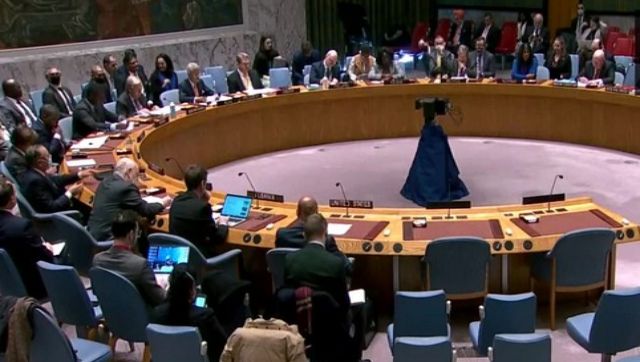While responding to the question on United Nations Security Council (UNSC) reform, the UN chief on 19 December 2022, during the end of year UN annual conference, said, ‘possibility of enlarging is now seriously on the table’. The ongoing Ukraine-Russia conflict has yet again brought to the fore the relevance of multilateral global institutions like the UNSC. There is an urgent need to reform and fix the UNSC, which has generally been ineffective to cope with current security challenges. During the formation of the UN in 1945 there were only 55 members. Over the years, its membership has expanded phenomenally and 193 out of 195 countries are members of the giant organisation today. The remaining two, Holy See (Vatican City) and the State of Palestine enjoy the status of non-member observer states. The permanent members of UNSC, the Big Five or P5 (China, France, Russia, UK, and USA) comprises those who were victors of the Second World War. The victors designed the UN to suit their interest and the UN charter was framed accordingly to give them permanent membership in the Security Council and the power of veto that could torpedo any resolution if it did not suit the interest of individual countries. This prevented the adoption of any “substantive” resolution by the UN regardless of its level of international support. The UN Security Council has another 10 members without veto rights and they are elected by the General Assembly. The global situation has witnessed path breaking transformation ever since the UN was formed. The geopolitical, strategic and economic realities are fast changing. The global economic and population fulcrum has shifted to the Indo-Pacific. Inadequate Asian representation and no representation from African and Latin America countries have put out a big question mark on the relevance of the organisation that has kept such a huge mass of humanity unrepresented. In such a situation the UNSC is becoming increasingly irrelevant or useless. Since 1992, a number of initiatives and demands to reform the UNSC have been initiated. The G4 (Group 4) represented by India, Brazil, Germany, and Japan made the demand for their inclusion as permanent members of the UNSC. Subsequently, South Africa, the largest economy in the African continent, made a similar demand. Later, Italy, Pakistan, Mexico, and Egypt have also raised their claims to the high table of permanent membership. In 2005, Kofi Annan’s plan of the General Assembly Task Force on security council reforms suggested expansion of the UNSC with 24 permanent members. But lack of a firm resolve to democratise the UN has not allowed the agenda to take off. The Russian-Ukraine conflict has once again forced the world to think what should be done to prevent wars and conflicts and make the world a better place. Recently, during the UN General Assembly session in September 2022, both Russia and the US demonstrated their willingness and intentions to enlarge permanent membership of the UNSC. France and the UK have earlier given the proposal for restricting the use of veto right by the P5. On 19 December 2022, after the end of the year annual conference while responding to a question on UNSC reform to make this powerful world body more fit for the purpose of dealing with crises such as the ongoing Ukraine-Russian conflict, UN chief secretary general Antonio Guterres said that “enlarging the security council is now seriously on table”, but doubtful over granting veto right. He had earlier tweeted that the majority of UN members now acknowledge and are of the firm view that the UNSC must be reformed to reflect the geo-political realities of today. Ahead of the UNSC meeting, India’s External Affairs Minister, Dr S Jaisankar, presided over a signature event on “reformed multilateralism”. A concept note by India was circulated stating that the UN reform has been left open ended without a set timeline. Any reform of the security council will require positive vote of all P5 and two-third votes of the remaining 126 or 188 members. In the last 77 years, many reform initiatives have been attempted but none succeeded except the one in 1965 when the UNSC was expanded from 11 to 15 members. Whether this time it will see the light of the day or be pushed forward will depend upon how the ground realities forces the world to reform the UNSC and overcome the security challenges of the 21st century. The author is a well-known strategic & security expert who has also served in the UN for global peace. Views expressed are personal. Read all the Latest News , Trending News , Cricket News , Bollywood News , India News and Entertainment News here. Follow us on Facebook, Twitter and Instagram.
In the last 77 years, many reform initiatives have been attempted but none succeeded except the one in 1965 when the UNSC was expanded from 11 to 15 members. Security challenges of the 21st century make this the current initiative a vital one
Advertisement
End of Article


)

)
)
)
)
)
)
)
)



